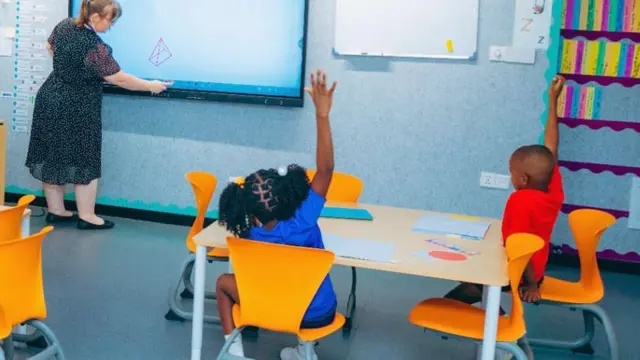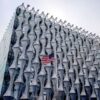For many years, well-off Nigerians have sent their children to prestigious British boarding schools – but now some of those institutions are setting up campuses in Africa’s most populous nation.
Last year, Charterhouse launched a primary school in the city of Lagos and will open a secondary school this September.
Rugby School will also begin offering secondary education in September. Other well-known institutions, such as Millfield, Wellington School and Harrow, are also exploring opportunities in Nigeria.
This obviously all comes with a price tag for Nigerian parents – but the country’s well-heeled elite have historically sent their children to the UK for secondary education, drawn to the British curriculum’s rigour, prestige and global opportunities.
“I’m actually excited about it,” says Karima Oyede, a British-Nigerian management consultant, whose son is currently in year 10 at Rugby in the UK but will be moving to its Lagos school in September.
Her family has been meaning to relocate to Nigeria for a while but has not done so earlier because of the children’s education.
“Having the opportunity to experience the British system in his country of origin is the best of both worlds,” she says.
Nigeria already has a proliferation of private schools but high-quality, internationally recognised education within the country will appeal to many parents, particularly those who wish to preserve their children’s cultural identity.
“African parents love the fact that they are giving their children international standing so they can compete with their counterparts in any other part of the world, but they don’t want their children to lose their African-ness,” says Ijay Uwakwe-Okoronkwo, the founder of Nkuzhi Learning Foundation in Nigeria’s capital, Abuja.
The educational consultant, who advises parents and schools on international boarding options, explains the more relaxed, less respectful attitude children return with after going to school abroad is not always appreciated.
This cultural dilemma extends to the growing conversation around LGBTQ issues. Same-sex relationships and public displays of affection are illegal in Nigeria and homosexuality is not openly discussed or promoted.
It is something that the new crop of British schools has taken on board. For example, while Charterhouse UK displays a rainbow flag, the Nigeria school does not.
“We’re a British independent school but sitting firmly within Nigerian cultural needs,” says John Todd, head of Charterhouse Nigeria.
“There’s this huge concern about Western cultural views.
“For parents here, we know it’s a really big issue. It’s a reason parents are worried about the UK schools.
“I’m not making a judgement – it’s just the way it is.”
British institutions in Nigeria have no choice but to “follow the law of the land”, he acknowledges, adding: “We are 100% compliant.”
Recognising Nigeria’s deeply religious society, Charterhouse also permits parents to take their children home from the boarding house for Sunday church services, with the expectation that they return by Monday morning.
There are several reasons behind the growing interest of prestigious British schools in opening campuses in Nigeria.
While regions like the Middle East and China are already saturated with international schools, Africa is relatively virgin territory.
“Nigeria is the gateway to Africa, and Africa is kind of the last continent for British schools to establish in,” says Mark Brooks, an export champion for the UK’s Department for Business and Trade.
He organises annual events in Nigeria where about 20 British schools meet prospective students and parents.
“Nigeria has an incredible reputation for producing driven, high-achieving students,” says Mr Brooks.




